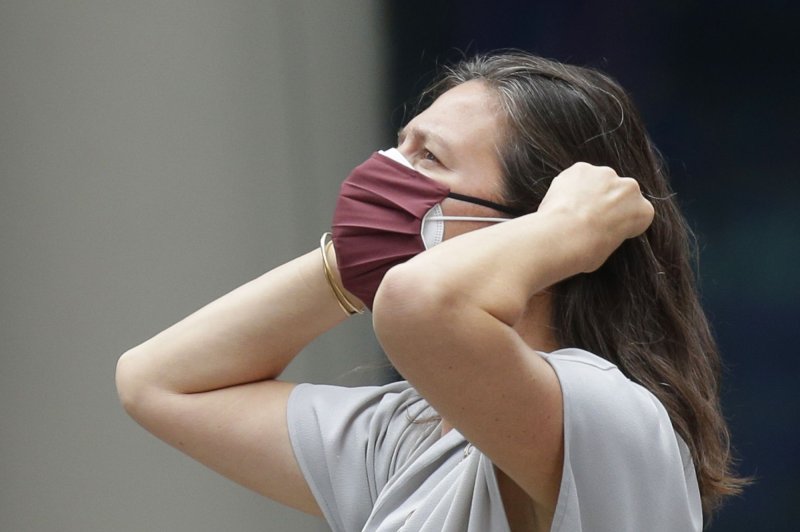HHS secretary Alex Azar said that a COVID-19 vaccine could be available by the end of the year. Photo by John Angelillo/UPI |
License Photo
Oct. 21 (UPI) -- Health and Human Services secretary Alex Azar said Wednesday that he expects "one or two safe and effective" COVID-19 vaccines to be available by the end of the year.
At least two of the six vaccine products -- those being evaluated by drug makers Pfizer and Moderna -- under development as part of the Trump administration's "Operation Warp Speed" have produced promising results in clinical trials so far, he said.
Janssen, a subsidiary of Johnson & Johnson producing another of the vaccines currently in testing, said Oct. 12 it had to pause trials of its vaccine after a participant fell ill, according to Azar.
However, production of vaccine doses, and the vials they will be stored in, for all six products contracted under Operation Warp Speed has begun, he said.
"There is hope on the way in the form of safe and reliable vaccines in a matter of weeks or months," Azar said during a press briefing Wednesday at the U.S. Centers for Disease Control and Prevention in Atlanta.
If or when a vaccine is approved by the U.S. Food and Drug Administration for distribution and use, enough will have been manufactured to administer to "our most vulnerable individuals" -- those at highest risk for serious illness from COVID-19 -- by the end of December, he said.
Supplies will be sufficient to vaccinate all seniors, front-line health workers and first responders by the end of January, and the vaccine will be available to the public by the end of March, Azar said.
Dr. Anthony Fauci, director of the National Institute of Allergy and Infectious Diseases, has endorsed roughly the same timeline in recent weeks, and other experts have also said a vaccine could be widely available by mid-2021.
All of this assumes that the candidate vaccines continue to produce positive results during clinical trials, particularly with regard to safety, Azar said.
Despite the significant progress, some infectious disease experts are not as optimistic with regard to availability -- and whether people will want it.
"I know we are all hoping for a COVID vaccine to become widely available before the end of the year [but] this is simply not going to happen," Dr. David A. Nace, chief medical officer at UPMC Senior Communities, told CBS News in Pittsburgh in late September.
"Recent polls have indicated that many Americans, if not more than half, may actually decline the first generation COVID-19 vaccine, making it much more problematic in protecting the elderly and the rest of us," he said.
In addition to the pause in the Janssen vaccine trials, officials in Brazil announced earlier Wednesday that studies of AstraZeneca's COVID-19 product were halted there after a volunteer participant died, reportedly after being injected with a placebo, according to the Washington Post.
That trial study was suspended in England and the United States in September after a participant in England contracted an unexplained illness. The trial has restarted in England, and researchers said it may restart in the United States as soon as this week.
"Patient safety is at the center" of the vaccine development process, Azar said, adding that all products will undergo several levels of independent safety review by the FDA before distribution.
Azar's remarks come at a time when U.S. public health officials are "seeing a distressing trend" in rising numbers of COVID-19 cases across the country, with nearly 60,000 new cases being reported nationally per day, on average, according to Dr. Jay Butler, the CDC's deputy director for infectious diseases.
Operation Warp Speed is a public-private program, established by the Trump administration under the auspices of HHS, the CDC, the FDA and the Department of Defense to support development of COVID-19 vaccines and treatments.
The initiative has spent more than $10 billion, primarily to fund research and development at private companies, according to HHS.















